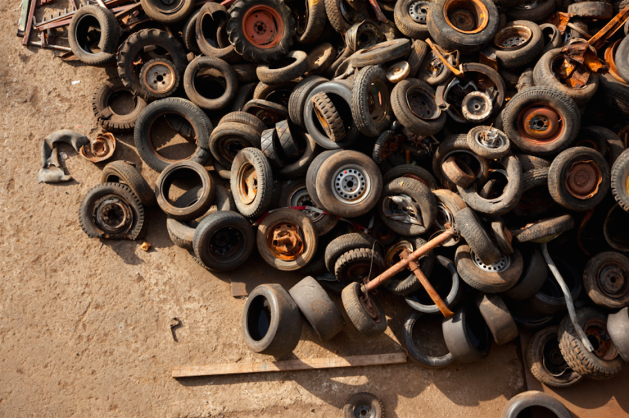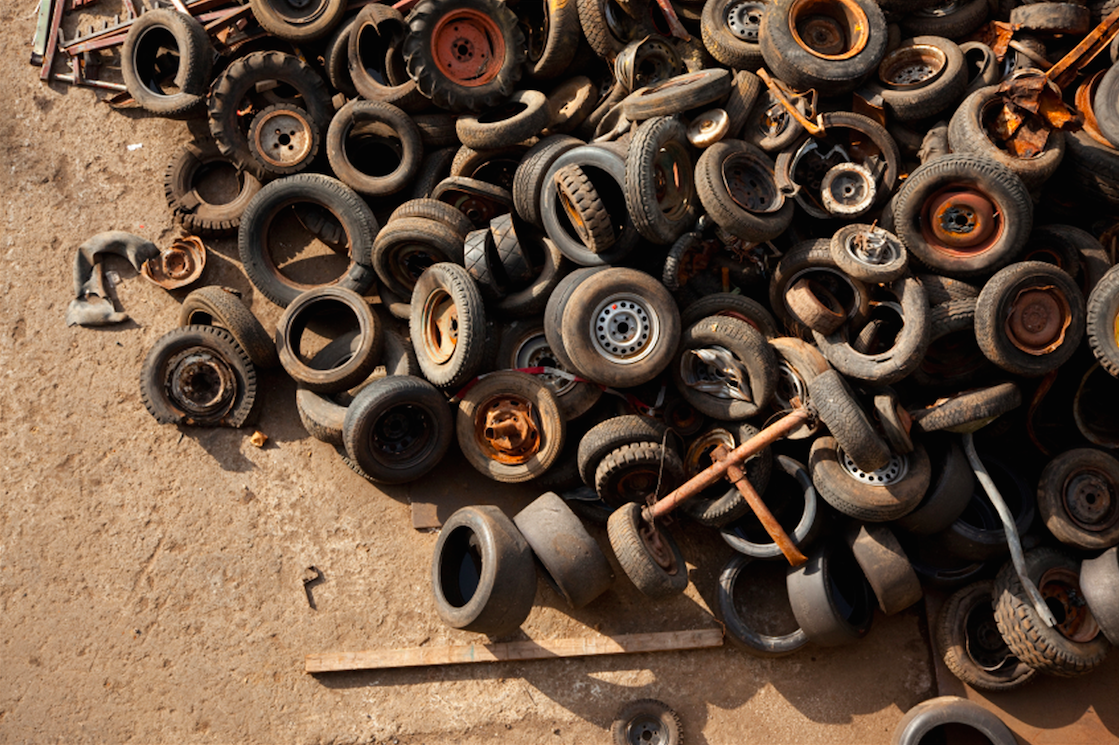
When people talk about destructive technology, they mention nuclear bombs and bio-weaponry — they rarely cite the wheel. After all, the invention of the wheel enabled shipping, industrialization, transportation and iPods — all the trappings of modern civilization.
But once we started making rubber wheels, as in tires, we created a problem. Tires wear down and must be replaced. And getting rid of worn-out tires proves problematic. Every year, about 188 million scrap tires end up in landfills, stockpiles and illegal dumps.
Because of their empty middles, tires take up significant amounts of landfill space. They also tend to rise to the top of landfills, where they can provide homes for rodents and disturb landfill cover. Shredding tires helps, but the process is too expensive to be used universally.
And believe it or not, stockpiles of scrap tires can cost lives. Tires’ void spaces can collect rainfall, creating pools of standing water that facilitate mosquito breeding. Mosquitoes do more than annoy — they also spread deadly diseases, including Yellow Fever, Dengue and West Nile Virus. Shipping used tires between states has helped spread dangerous, non-native mosquito species through the country.
Tires can also become fire hazards. Although tires are slow to ignite, once tire fires start, they are hard to extinguish. Foam and water often prove useless. In 1998, a grass fire ignited 7 million tires in California’s San Joaquin Valley. Originally expected to burn two weeks, the fire lasted over two years. The fire created noxious gas and an oily residue, which affected local communities and water systems.
America needs to keep its tires from piling up. Some tires can be recycled and mixed with other materials to create walls and footing for playgrounds. Others may become fuel for the very cars they used to wheel.
One company, JBI Inc., has developed a process, Tires to Oil, that turns used tires into a fuel similar to biodiesel. The tires do not have to be shredded or separated, and can become oil in as little as two to four hours. A gas by-product created by the process supplies all of the energy needed to convert the tires into oil. Turning tires into fuel will ease America’s dependency on foreign oil, not to mention reduce the number of scrap tires currently threatening human health.
JBI Inc. trades on the OTC under the stock symbol JBII. For more information, visit www.jbiglobal.com.



